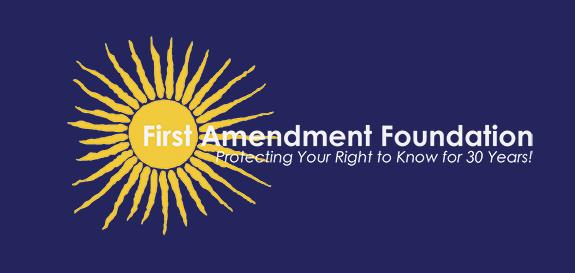
A nonpartisan open-records advocacy group released a questionnaire from one gubernatorial candidate ahead of the election. (Via Floridafaf.org)
By Ashley Lopez
Florida Center for Investigative Reporting
Following a tough couple of years for the state’s robust public record laws, the First Amendment Foundation asked Florida’s two gubernatorial candidates to answer a few questions about how open they would be as the state’s top elected official.
According to the group, Gov. Rick Scott’s campaign did not return the questionnaire “despite an extension of the deadline.”
However, Scott’s Democratic challenger, Charlie Crist, did.
Here are Crist’s answers via a press release from the nonpartisan open-records advocacy group:
As governor, will you release a weekly calendar in advance that details your appointments, public meetings, and travel schedule? YES.
Do you pledge that all of the public business of your office will be conducted on public computer networks and devices? YES.
Do you pledge that you and your staff members will not use private email accounts in conducting public business? YES.
In your opinion, what is the state’s biggest open government problem and what should be done about it? Presently, far too much of the public’s business by the executive branch is being conducted in private. Travel, meetings, emails, texts…seem to be out of the public view. Further the executive branch seems to believe it is its job to make it more difficult and as expensive as possible for the public to have access to public records. Government in the shadows is contrary to our Constitution and contrary to the best interests of our citizens!
As Mary Ellen Klas of The Miami Herald/Tampa Bay Times Tallahassee bureau reports, this questionnaire was released “against a backdrop of increasing questions about his commitment to Florida’s open government laws.”
During his term, Scott has blocked data about his private air travels from public flight tracking records. He has released only superficial details about his daily schedules. He has used, and allows his staff to use, private email accounts when corresponding on public business, creating additional barriers to public access. And his staff has been encouraged to use private cell phone accounts when sending text messages about politically sensitive issues.
In each case, the governor has said he has followed the law but his actions have drawn lawsuits.
He is being sued by Tallahassee attorney Steven R. Andrews, a Republican, for allowing his staff to alter calendar entries, for withholding documents from public records requests and for failing to say who opened his private Gmail account and the Gmail accounts of his staff. He faces another lawsuit, from attorney general candidate George Sheldon, a Democrat, alleging that his financial disclosure forms fail to reflect more than $200 million of his wealth because it excludes assets his wife owns but which Scott remains as the beneficiary.
Furthermore, when Scott took over as governor in 2011, the email accounts he and most of his transition team used were deleted – even though state law required that those emails and documents be kept for public record.
In a statement, FAF’s president, Barbara Peterson (who is also on the board of the Florida Center for Investigative Reporting), said: “Florida has a long and rich tradition of open government, with some of the most progressive laws in the country… However, Florida’s open government laws have been under attack in recent years, and there has been a significant increase in the number of complaints received by the First Amendment Foundation’s FOI hotline regarding government abuses of our right to know laws.”
